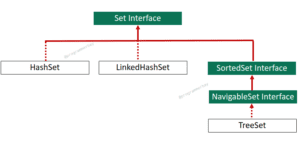Difference between join() and yield() in Tabular form
| Join Method | Yield Method |
|---|---|
| It ensures a calling thread to get terminated first and then after further execution is proceeded by other thread instance | It simply makes other threads having same priority to do their task |
| It puts other threads to suspended state, till the thread on which the join() call is finished | It moves a thread from running to runnable |
| It allows us to provide threshold time | It doesn't, totally depends on thread Schedular |
| Priority doesn't matter | Applies on same priority thread |
Join() Method
Join method ensures termination or completion of a thread on which it is called. So, that other threads can join the calling thread as and when it dies.
The statement after the join() won’t be executed by current thread instance until the thread on which it is invoked finishes its task. However, it is also possible to mention maximum time to which extent to wait.
Java program Example:
class ThreadExample extends Thread{
@Override
public void run() {
System.out.println("Child thread is printing");
for(int i=0;i<10;i++)
{
System.out.println(i);
}
try {
sleep(2000);
} catch (InterruptedException e) {
e.printStackTrace();
}
}
}
public class Main {
public static void main(String[] args) throws InterruptedException {
ThreadExample thread1 = new ThreadExample();
thread1.start();
thread1.join();
System.out.println("I will wait for child thread to join me");
System.out.println("Now Main thread is executing");
}
}Output
Child thread is printing 0 1 2 3 4 5 6 7 8 9 I will wait for child thread to join me Now Main thread is executing
yield() Method
Yield method simply let other threads of same priority of the calling thread to finish their task.
In other words, It tells the thread scheduler that the thread who actually called the yield() is willing to wait and allow other threads having same priority to execute their task.
Java program Example:
class ThreadExample extends Thread{
@Override
public void run() {
for(int i=0;i<10;i++)
{
yield();
System.out.println("I am child "+Thread.currentThread().getPriority());
}
}
}
public class Main {
public static void main(String[] args) {
ThreadExample thread1 = new ThreadExample();
thread1.start();
System.out.println(" Main thread is executing");
for(int i=0;i<10;i++)
{
System.out.println("I am Main "+Thread.currentThread().getPriority());
}
}
}Output:
Main thread is executing I am Main 5 I am child 5 I am Main 5 I am child 5 I am Main 5 I am child 5 I am Main 5 I am child 5 I am Main 5 I am child 5 I am Main 5 I am child 5 I am Main 5 I am child 5 I am Main 5 I am child 5 I am Main 5 I am child 5 I am Main 5 I am child 5


